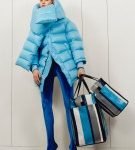
Blame it on Amazon, on the constant stream of social media feeds, or on sheer boredom, but shoppers today increasingly crave new merchandise from retailers. According to Shopper-First Retailing, a new study from Publicis.Sapient and Salesforce based on data from half a billion shoppers worldwide, 69% of shoppers expect to see new products every time they enter a store .
Here’s what the study uncovered and how your retail store or ecommerce website can keep up with shoppers’ insatiable thirst for the new.
Offering New Products is One Key to Retail Success
“Make it fresh” is the new mandate from shoppers, according to the study, which lays out three key rules to follow for success.
Rule 1: Constantly Renew
Shoppers reward freshness with their wallets: Among the top 5% of products that the retailers surveyed sold each month, 59% are new. Keeping your product mix fresh is essential to generating customer loyalty and keeping shoppers coming back for more. Retailers that fail to accomplish these goals will continue losing ground to marketplaces like Amazon, the study contends.
To keep a steady stream of new merchandise in your store or on your website, here are some ideas:
- Visit trade shows to seek out new products to add to your offerings.
- Look for startup manufacturers or distributors who may be interested in selling to you.
- Ask your customers which products or brands they’d like to see you carry.
Of course, you don’t have to turn over all your inventory every week to give shoppers a sense of the new. Providing a new feeling, look or experience every time shoppers visit can help create that renewal they seek. For example:
- Rotate displays to bring different merchandise to the front of your store or the home page of your website each week.
- Spotlight a particular brand or type of product each week.
- Change out your window displays and your store home page each week.
- Invite a brand you sell to do a pop-up shop in your store (check out these 25 examples of eye-popping pop-up shops for ideas).
Rule 2: Act with Urgency
Customers who have purchased from you recently are most likely to buy from you again. According to the study, half of repeat buyers make a second purchase within 16 days of their first purchase.
But while 50% of shoppers make their first purchase of a product through a retailer, 47% go to marketplaces like Amazon when they want to buy it again. If you want to avoid losing customers to competitors, you’ve got to act quickly to re-engage the first-time buyer.
This can include:
- Loyalty offers
- Upselling (try sending an email suggesting a related product)
- Retargeted ads
Personalization can also help get first-time shoppers back. An e-commerce site can provide personalized “you might also like” recommendations; a store salesperson can review studying a shopper’s past purchases before suggesting new items to try on in the store.
Rule 3: Create Unique Products
No small retailer can hope to compete with Amazon’s vast catalog of products. But small retailers can compete when it comes to offering unique products that no one else has. Consider these survey findings:
- 59% of customers are more likely to buy from a retailer that offers customization
- 49% are more likely to buy from a retailer that offers limited editions
- 36% are more likely to buy from a retailer that offers collaborations
Thirty-one out of 70 retailers that were “mystery shopped” in the study offered customized products or product collaborations, and four out of five top-performing stores offered some type of customization.
Customization can range from the minimal (monogramming or engraving a product) to the maximal (creating a product from scratch to the customer’s specifications). American Girl and Build-a-Bear are prime examples of customization, but this is also within reach for small retailers. For example, one store in the study offered made-from-scratch jewelry handcrafted in the store. Retailers that enable shoppers to truly create products from scratch stand to benefit greatly.
Follow these rules, and it’s not so hard to provide shoppers with the constant new products they crave.
[“source=smallbiztrends”]











